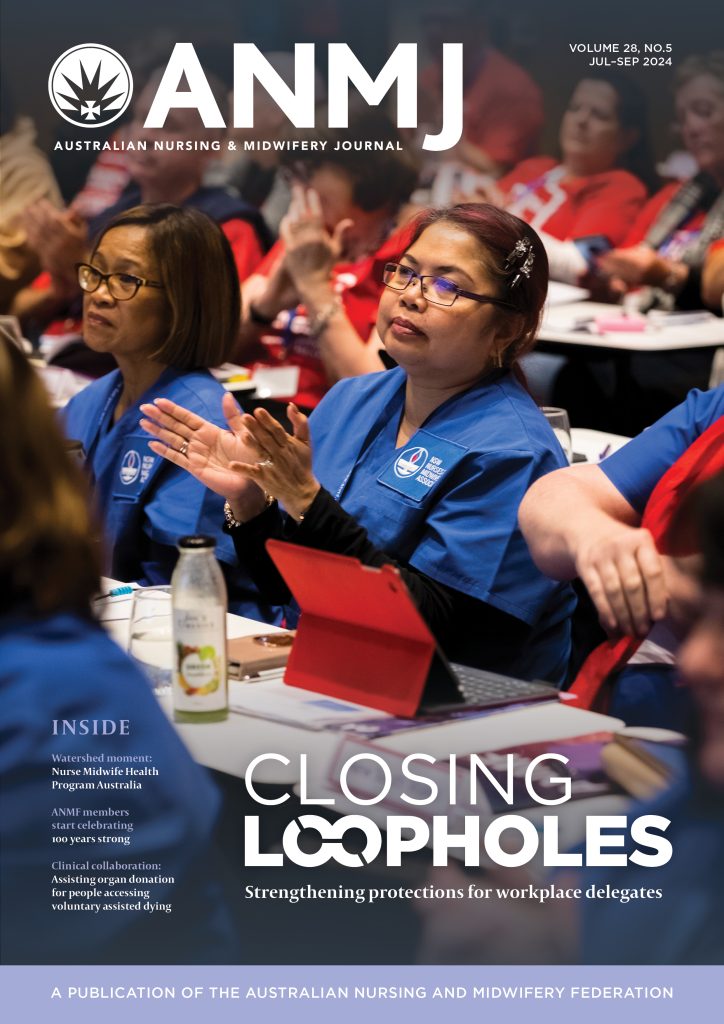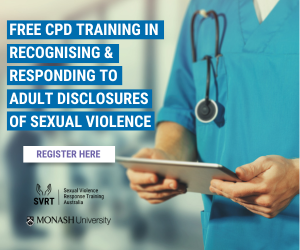Nurses and midwives working across all settings should take advantage of social media by using platforms such as Facebook and Twitter to build relationships, share research and solutions, advance the professions and above all improve patient care, according to two leading academics.
“It has the opportunity, ultimately, to improve patient care,” says Associate Professor Deb Massey, an RN who is currently Group Lead for Nursing at Southern Cross University’s Gold Coast campus.
Dr Kaye Rolls, an RN with an ICU background and current Aged Care Research Fellow at the Centre for Applied Nursing Research (CANR) at Western Sydney University, agrees.
“The problem with healthcare practices is that we tend to practice in a delineated geographical space and if you don’t communicate outside that you don’t know what other people are doing and your practices are rarely challenged. We need to challenge what we’re doing and challenge our ways of thinking to actually ensure we’re delivering the best patient care.”
The academics discovered the significant potential benefits of social media via different routes.
A colleague first encouraged Associate Professor Massey to join Twitter and over time she began to engage more and develop networks and professional opportunities, including cultivating research projects.
Dr Rolls’ introduction to social media, specifically a listserv ICUConnect, was triggered by a clinical problem that emerged while she was working as a critical care nurse in ICU and then sparked an ongoing interest in researching how the powerful tool could help clinicians, academics, researchers and students.
“I’ve had a keen interest in social media from the early 2000s and that’s mainly because I needed to answer a very urgent clinical question and we couldn’t find the answer in our ICU so I joined a virtual community called ICUConnect and I got my answer very quickly,” Dr Rolls explains.
“The books didn’t help us and the journals didn’t help us but this community helped me very quickly.”
Years later, Dr Rolls would focus her PhD on the nature and value of virtual communities in intensive care, finding that some clinicians prefer a closed community for professional networking to the language and public visibility of Facebook and Twitter.
“People want to engage and be interactive, rather than it be just one way, in a psychologically safe space. Twitter is completely open to the world and so many people don’t feel safe there whereas in closed virtual communities people know they’re definitely only going to be interacting with people who are the same as them.”
Undoubtedly, the use of social media has risen considerably over the past decade and more nurses and midwives are tapping into its potential benefits.
Here’s 8 reasons why nurses and midwives should embrace social media
COLLABORATION
“We work in increasingly diverse environments, whether you’re a clinical nurse or midwife or academic, our environments are changing all the time,” Associate Professor Massey says.
“There’s an increasing emphasis on educational learning and interprofessional working so the ability to communicate with a variety of different people from diverse backgrounds, which Twitter has enabled me to do, opens up your horizons.
“I might post a comment about something and then someone sends me a private message and before I know it I’m on a research team developing a research proposal or an editorial or am developing a learning resource – it’s exciting and exhilarating.”
BUILDING NETWORKS
Dr Rolls says humans are inherently wired to want to be part of a community and that the oral exchange of knowledge remains strong because it brings meaning a journal or research article can’t always achieve on its own.
“Building a network connects you with a group of people you find credible so that knowledge transfer can occur. That’s the key to social media and platforms like Twitter, following people who you find credible so that knowledge can be transferred in a practically oriented way, whereas an article can be difficult for people to understand, especially for students nurses, and social media can assist with outlining what the research actually means for them.”
SOLVING CLINICAL ISSUES
Dr Rolls says social media is useful when faced with solving difficult clinical problems.
“What I found in my research and personally is you may not have the answer locally but you can reach out to a broader community of colleagues and find solutions to problems. Most problems are not unique and somebody has likely solved the problem that you have, so it’s a good way to connect and find out what other people have done before adapting it locally.”
SHARING SOLUTIONS AND OPINIONS
In the early days of ICU Connect, Dr Rolls says members were encouraged to post things they had done locally, such as clinical practice improvement projects, policies, guidelines or communication programs, to support other colleagues.
The advice and expertise was highly valued and helped communicate innovative clinical and educational information.
DISSEMINATING RESEARCH
Associate Professor Massey says Twitter can be a great tool to showcase research and enhance the professional impact of one’s work.
“A paper put on Twitter is much more likely to get cited in terms of disseminating and translating research if you engage in social media and you are a researcher.”
PROFESSIONAL DEVELOPMENT
Dr Rolls believes social media can play a crucial role in maintaining professional development.
“One of the key things social media does for me is it helps me develop and expand my knowledge base. Accessing new research and understanding what it means helps me maintain my professional knowledge in intensive care when I’m not working in intensive care anymore.
“It also helps me expand my knowledge of aged care, which is where I’ve moved into, but also other areas of nursing and midwifery.
“Social media can also connect you to other resources to help with professional development, whether it’s a YouTube video or attending a conference vicariously by following the hashtag and picking up on the issues people are talking about.”
ADVANCING THE PROFESSIONS
According to Dr Rolls, one of the biggest benefits social media can make to nursing and midwifery is advancing the professions.
“Nurses still have an image problem,” Dr Rolls suggests.
“It came home to me when I was talking to some undergraduate nurses and I said ‘So what did you think nursing was before you started?’ and one of them said ‘I thought a hospital was like a hotel and all nurses did was hand medications out’.
“So what social media can do by nurses actively engaging with it is help communicate how professional we are and how well research oriented we are. It helps to say nursing can be so many different things.”
FORGING FRIENDSHIPS
Lastly, beyond the important professional benefits that can be attained by using social media, Associate Professor Massey says it can also simply provide a good avenue to making new friends.
“From collaborating with people on social media I’ve developed quite strong connections with people and I feel like they’re my friends even though I’ve never met them.
“I probably met Kaye on social media. When I am at a conference I’ll go up and say hello to someone I follow on Twitter even though I’ve never met them and we’ve got this immediate connection. It breaks down a lot of social and professional barriers.”









